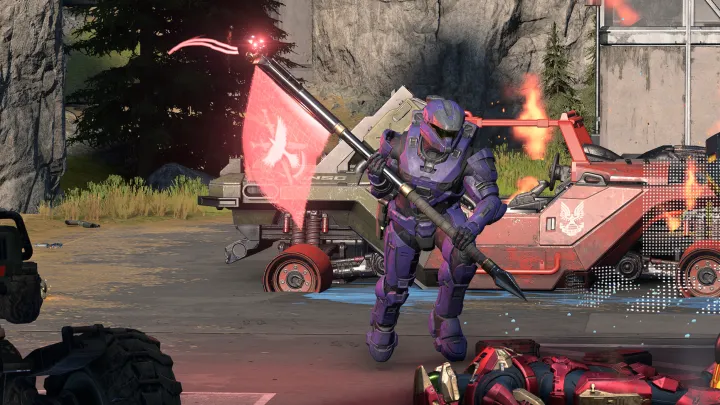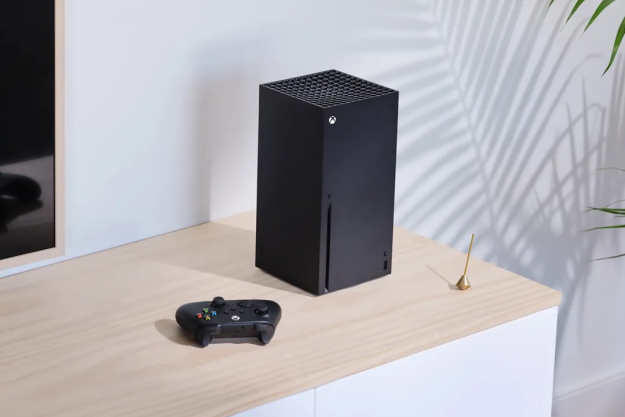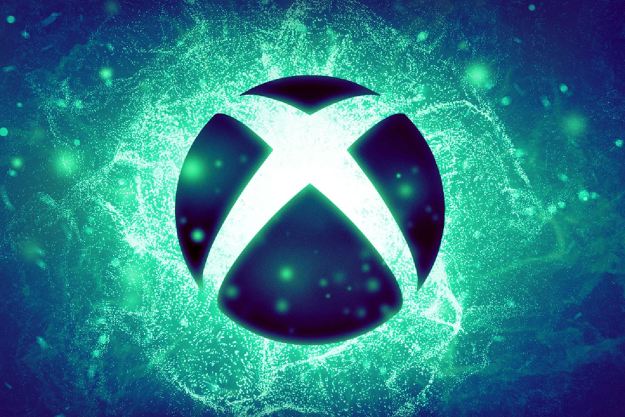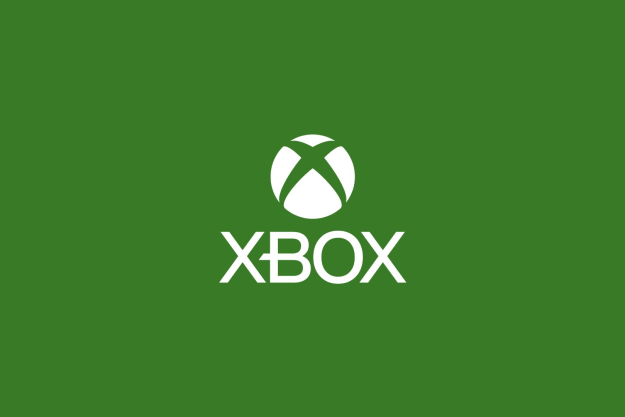Halo Infinite’s first six months haven’t gone as planned. When the multiplayer game launched in December 2021, it seemed destined for success thanks to glowing critical praise and immediate fan excitement spurred on by a surprise early beta release. Though the game was missing key features like co-op play and Forge mode, it seemed that 343 Industries had a firm plan for getting them out, alleviating concerns.
The honeymoon period didn’t last long. With each passing week, gripes began mounting. Fans criticized everything from the game’s slow progression to its overpriced cosmetics to its lack of playlists. Soon enough, 343 was forced to shift its priorities, kicking key features down the line. The public sentiment around the game isn’t quite as enthusiastic as it was in December, and the game’s woes are only continuing in season 2.
None of this should come as a surprise. Halo Infinite’s trajectory was clear the moment 343 Industries started punting features into a post-launch road map. Despite several stories of rocky live service launches over the years, games like Halo Infinite continue to fall into the same traps by failing to anticipate unforeseen problems.
Infinite problems
Since December, 343 Industries has found itself playing a seemingly never-ending game of whack-a-mole. That began immediately when the game launched, as fans took issue with the game’s slow battle pass progression. The studio quickly made tweaks to the way experience points are doled out over the course of multiple updates.

It seemed like a simple enough change, but it kicked off a snowball effect. Fans began voicing their concerns with various parts of the game, calling for a slew of quality of life changes. Again, 343 acted quickly, tackling complaints like the game’s lack of playlists, but disaster struck when the game’s Big Team Battle mode broke. Suddenly, players couldn’t load into the playlist at all, prompting a more urgent emergency response. Big Team Battle would remain broken for well over a month, with some of 343’s patches meant to correct the issue outright failing.
The backlog of issues has carried over into season 2. While 343 addressed some major fan feedback in the latest update by changing its approach to cores, it’s now dealing with another set of fires. For instance, the update features a new mode called Last Spartan Standing, but challenges related to the playlist were beset by bugs at launch. The update also removes players’ ability to hijack Pelicans, which is already fueling another round of complaints.
The team has acknowledged that season 2 isn’t going according to plan. In a tweet, creative head Joseph Staten apologized for the unforeseen issues. “Hey Spartans, this week has been bumpy,” Staten tweets. “That definitely wasn’t our goal. We are indeed taking your feedback to heart, especially regarding map jumps and speedrunning. We’re reviewing options and will have more news to come.”
Hey Spartans, this week has been bumpy. That definitely wasn't our goal. We are indeed taking your feedback to heart, especially regarding map jumps and speedrunning. We're reviewing options and will have more news to come. 💚 https://t.co/RWEHK7VpDl
— Joseph Staten (@joestaten) May 5, 2022
Each issue creates another roadblock on the path to Forge and co-op. With 343 Industries addressing fundamental issues and major bugs at every turn, those features keep getting punted down the line. Co-op isn’t set to arrive until August now and Forge won’t arrive until November at the earliest. And of course, that’s if everything goes according to plan. The shooter finds itself in danger of stagnating as players impatiently wait for features that they expected to have at this point in the game’s life span.
Plan for the worst
Halo Infinite’s troubles seem to stem from a common issue that plagues many live service games: 343 Industries didn’t plan for the worst. We’ve seen this cycle routinely. A studio will launch a game with an ambitious road map that convinces players to sign on. However, those plans never seem to anticipate the inevitable issues that arise when launching something as complicated as a live service game.
Marvel’s Avengers is a notable case study. When the superhero game launched in September 2020, fans bought in expecting a steady flow of new heroes and content to make up for the base game’s thin endgame. Instead, developer Crystal Dynamics found itself swamped by bugs. The game’s first big patch would aim to fix over 1,000 issues. As a result of the unstable release, the game wouldn’t get its first big content drop until December. By then, the game had reportedly lost 96% of its player base.

Similar stories plagued Fallout 76 and Anthem, though the worst case scenario happened with Cyberpunk 2077. CD Projekt Red’s title isn’t a service game, but it’s one that was supposed to receive long-tailed support through DLC and updates. A promising road map was quickly foiled by a buggy launch that left the developer addressing a mountain of bugs. To date, the game still hasn’t received any originally promised story expansions and won’t until 2023.
Halo Infinite’s situation isn’t nearly as dire as any of those games. The core multiplayer shooting has always been a strong foundation, giving 343 more leeway with fans. It still feels good to play a round of Halo, regardless of the quality of life problems, but the game’s constant development left turns find it navigating around the same pitfalls. I constantly find myself wondering what would have happened if the game had been delayed even three months, with 343 taking extra time to focus on co-op and Forge rather than building the runway while the plane was already in the air.
In my review of Halo Infinite, I anticipated what was destined to happen. “I’m left feeling a little skeptical about the proposed timelines,” I wrote in December. “Will Forge actually make it out this year? Will co-op get delayed as 343 is forced to make more basic quality of life changes? Playlist issues and weapon balancing feel more pressing at the moment, and I wouldn’t be surprised if they take priority.”
It was an easy prediction to make based on historical data. Launching a game without key features is a gamble that rarely pays off and 343 Industries is grappling with that reality now. Season 2’s early woes threaten to push important updates back even farther; at this rate, Halo Infinite might not be the game players expected at launch until 2023. I still believe Halo Infinite is one of the most fun multiplayer shooters on the market today, but by that point, there’s sure to be dozens of hot new games vying for players’ attention. In such a competitive industry, first impressions are becoming more crucial than ever.
Editors' Recommendations
- I’m secretly hoping that the leaked all-white Xbox Series X isn’t real
- Madden 24 is coming to Xbox Game Pass just in time for the Super Bowl
- How to watch January 2024’s Xbox Developer_Direct
- For Microsoft, indies aren’t Game Pass extras. They’re the future of Xbox
- One of the best games of the year is finally coming to Xbox next month




